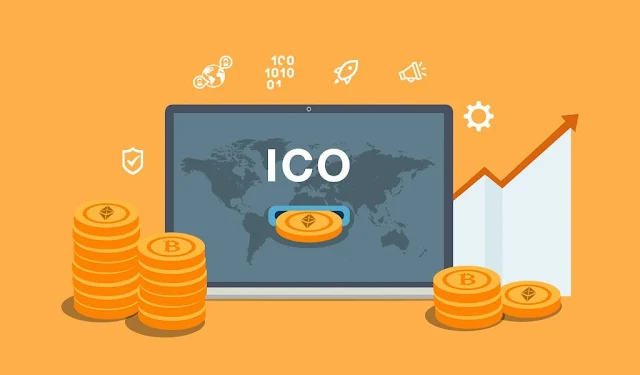Initial Coin Offerings (ICOs) have evolved significantly since their inception, becoming a cornerstone for blockchain-based fundraising. As we move through 2024, ICO development agencies are facing heightened demands for robust security and stringent compliance measures. This shift is driven by increasing regulatory scrutiny, sophisticated cyber threats, and the need to protect investors and uphold the integrity of the cryptocurrency market. This blog explores how ICO development agencies are addressing these challenges to ensure successful and secure token offerings.
1. Evolving Regulatory Landscape
The regulatory environment for ICOs has become more complex and stringent in recent years. In 2024, ICO development agencies must navigate a patchwork of international regulations, each with its own set of requirements. Key jurisdictions, such as the United States, European Union, and Asia-Pacific countries, have implemented specific rules governing ICOs, covering aspects like securities classification, anti-money laundering (AML), and investor protection.
How Agencies Address This:
- Regulatory Expertise: ICO development agencies are investing in legal expertise to ensure compliance with local and international regulations. This includes consulting with legal advisors who specialize in blockchain and cryptocurrency regulations.
- KYC/AML Procedures: Agencies are implementing comprehensive Know Your Customer (KYC) and Anti-Money Laundering (AML) processes to verify the identities of investors and prevent illicit activities. This often involves integrating sophisticated KYC solutions and maintaining rigorous AML procedures.
- Legal Documentation: Developing detailed whitepapers and legal documentation that clearly define the ICO’s terms, tokenomics, and regulatory compliance is crucial. Agencies are ensuring that these documents are vetted by legal professionals to avoid potential legal pitfalls.
2. Advanced Security Measures
The security of ICOs is paramount, given the significant financial stakes involved. Cyber threats have become more sophisticated, and the consequences of security breaches can be devastating. ICO development agencies are adopting a multi-layered approach to safeguard against these threats.
How Agencies Address This:
- Smart Contract Audits: Smart contracts are the backbone of ICOs, and any vulnerabilities in their code can lead to catastrophic losses. Agencies are conducting thorough smart contract audits with the help of specialized security firms. These audits check for common vulnerabilities, coding errors, and potential exploits.
- Penetration Testing: Regular penetration testing is performed to identify and address potential vulnerabilities in the ICO’s infrastructure. This includes testing for weaknesses in the platform, website, and associated systems.
- Secure Development Practices: Implementing best practices in secure software development, such as code reviews, security patches, and updates, is essential. Agencies are following secure coding standards and ensuring that development teams are trained in security best practices.
3. Investor Protection
Protecting investors is a top priority for ICO development agencies. Ensuring that investors are informed and their funds are secure is crucial for maintaining trust and credibility in the market.
How Agencies Address This:
- Transparent Communication: Agencies are focusing on transparent communication with investors, providing clear information about the project, its goals, and potential risks. This includes detailed whitepapers, roadmaps, and regular updates.
- Secure Payment Gateways: Implementing secure payment gateways and multi-signature wallets to handle contributions helps protect funds from unauthorized access. Multi-signature wallets require multiple private keys to authorize transactions, adding an extra layer of security.
- Insurance and Risk Management: Some agencies are exploring options for insurance coverage to protect against losses from cyber attacks or fraud. Risk management strategies are also being developed to mitigate potential threats.
4. Compliance with Data Protection Laws
Data protection has become a significant concern, especially with the implementation of regulations like the General Data Protection Regulation (GDPR) in the European Union. ICO development agencies must ensure that they handle personal data in compliance with these laws.
How Agencies Address This:
- Data Privacy Policies: Agencies are developing and enforcing data privacy policies that comply with relevant data protection laws. This includes ensuring that personal data is collected, stored, and processed securely and transparently.
- Data Encryption: Encrypting sensitive data both in transit and at rest is a standard practice. Agencies use advanced encryption technologies to protect personal information and prevent unauthorized access.
- Compliance Audits: Regular audits are conducted to ensure ongoing compliance with data protection regulations. Agencies are working with legal experts to stay updated on changes in data protection laws and adjust their practices accordingly.
5. Continuous Monitoring and Incident Response
In the rapidly evolving world of blockchain and cryptocurrencies, continuous monitoring and a well-defined incident response plan are critical for addressing security breaches and compliance issues.
How Agencies Address This:
- Real-Time Monitoring: Implementing real-time monitoring systems to detect and respond to suspicious activities and potential security threats. This includes monitoring network traffic, user behavior, and transaction patterns.
- Incident Response Plans: Developing and regularly updating incident response plans to address potential security breaches swiftly. Agencies are preparing for various scenarios, including data breaches, hacking attempts, and other emergencies.
- Post-Incident Analysis: After an incident, agencies conduct thorough post-incident analyses to understand the causes, assess the damage, and implement corrective measures to prevent future occurrences.
6. Educating Stakeholders
Education plays a crucial role in enhancing security and compliance. ICO development agencies are focusing on educating their teams and stakeholders about emerging threats and regulatory requirements.
How Agencies Address This:
- Training Programs: Regular training programs for development teams, legal advisors, and other stakeholders to keep them informed about the latest security threats and compliance requirements.
- Investor Education: Providing educational resources and guidance to investors to help them understand the risks associated with ICOs and how to protect themselves from potential scams.
Conclusion
As ICOs continue to be a popular fundraising mechanism in 2024, addressing security and compliance challenges has become more critical than ever. ICO development agency are at the forefront of implementing advanced security measures, navigating complex regulatory landscapes, and protecting investors. By adopting comprehensive security practices, ensuring regulatory compliance, and educating stakeholders, these agencies are working to build trust and credibility in the ICO space, paving the way for successful and secure token offerings.

Comments